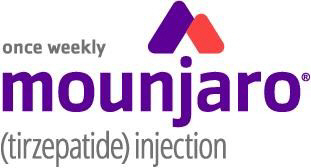Prescription for diabetes and obesity treatment Maunza begins...It's also approved as a treatment for obstructive sleep apnea
Aug 21, 2025
|
Unlike Novo Nordisk's gastric emptying, there is a lot of interest in 'hung-haeng' as it can be applied to diabetic patients.
Although Lilly reportedly supplied a large amount of Mountaineer to increase market share in the early days of its launch, some hospitals and clinics reportedly showed signs of ' hoarding'. However, concerns about the stock shortage are not significant as WeGovi has recently cut prices by up to 42%, depending on capacity.
Under these circumstances, it has been confirmed that Maunzaro has also been approved as a treatment for obstructive sleep apnea.
Korea Lily announced on the 21st that Maunzaro was approved by the Ministry of Food and Drug Safety on the 19th as an adjuvant for low-calorie diet and exercise therapy for the treatment of moderate to severe obstructive sleep apnea (OSA) in obese adult patients with an initial body mass index (BMI) of 30kg/㎡ or more. According to Lili Korea, Maunzaro is the first and only treatment to date authorized for the treatment of moderate to severe OSA.
Since obesity is a disease that directly affects OSA, the most common type of sleep apnea, the expansion of the indication to Maunzaro is drawing more attention. Increasing prevalence of OSA worldwide is known to be associated with increasing prevalence of obesity, and typical symptoms caused by OSA include fatigue, insomnia, sleep disturbance due to shortness of breath, habitual snoring during sleep, and respiratory arrest. When body fat accumulates on the airways and pharyngeal walls due to obesity, the diameter of the airways decreases, narrowing the respiratory passage, and lowering upper respiratory muscle function and inflammatory reactions close the airways together, resulting in or worsening sleep apnea. The prevalence of sleep apnea in the general population is about 15%, while it is twice as high in obese adults as 30%. A 10% weight gain is known to increase the risk of developing sleep apnea sixfold and increase the apnea index (AHI) by 32% within four years. The number of sleep apnea patients in Korea has doubled over the past five years from about 90,000 in 2020 to about 180,000 in 2024.
This article was translated by Naver AI translator.














